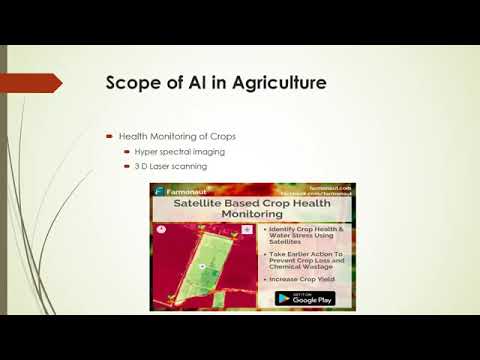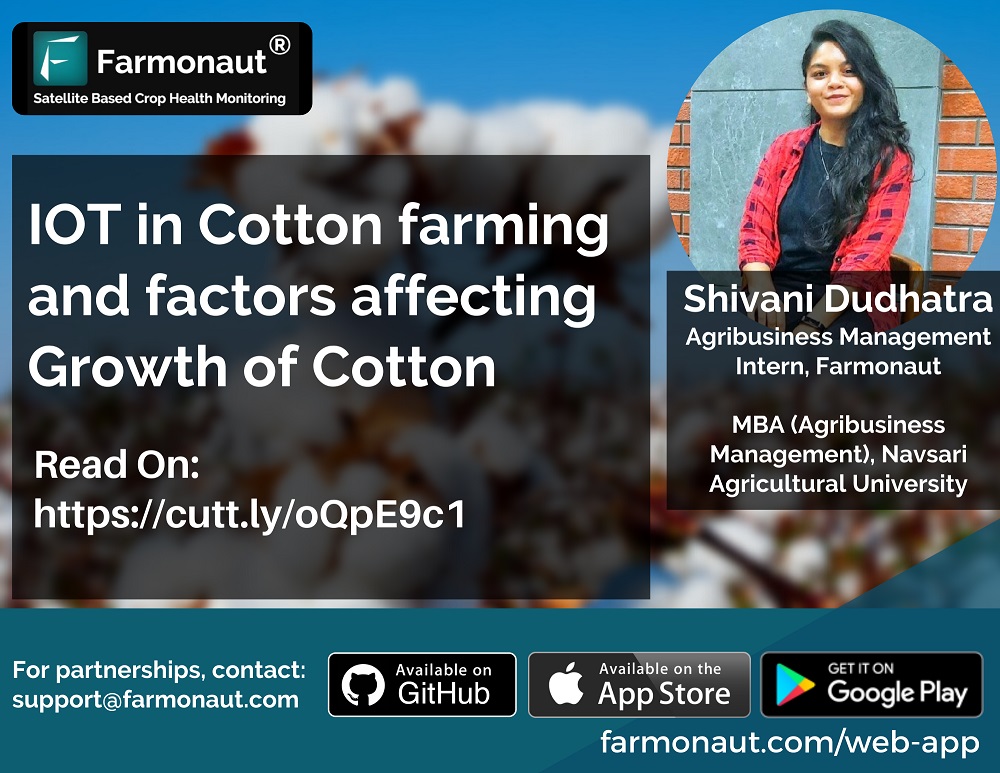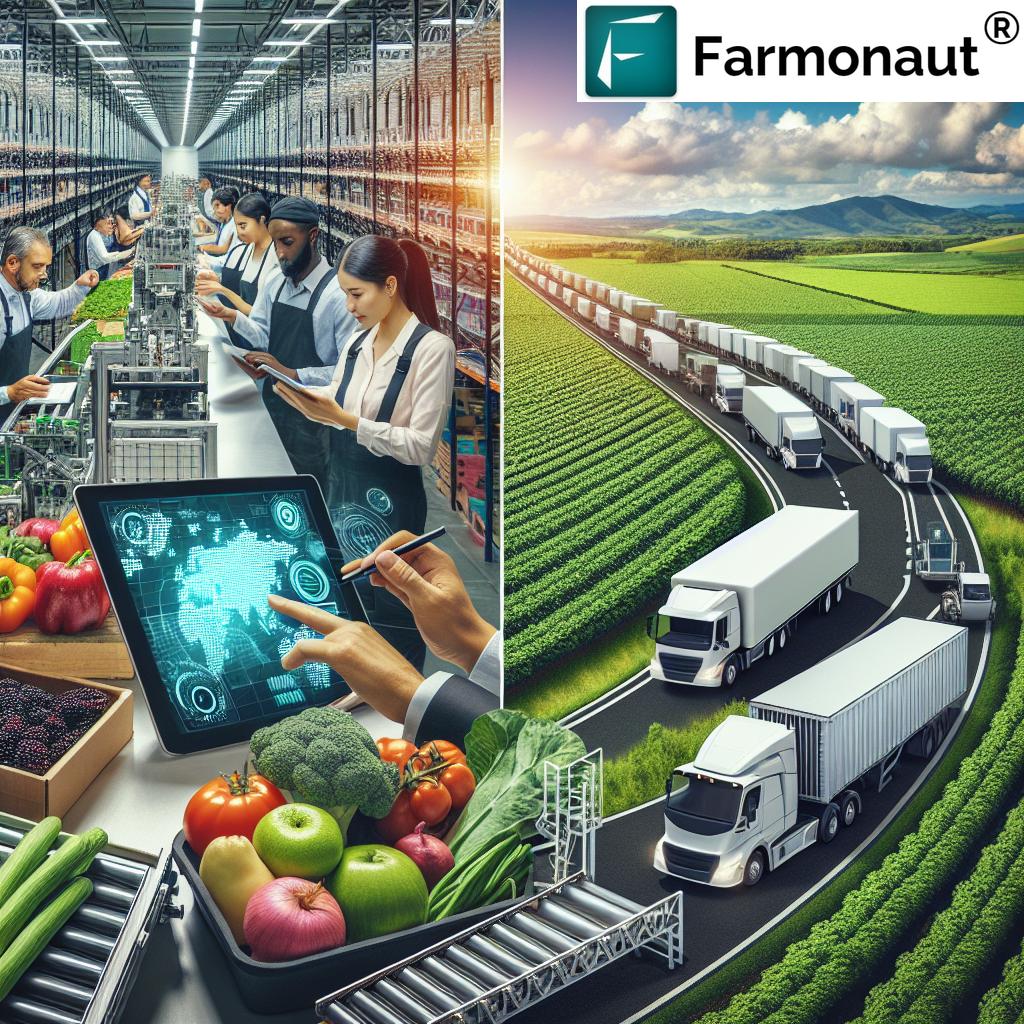How to Empower Farmers: 10 Game-Changing Secrets for Sustainable Agricultural Development
“Farmers using sustainable practices can increase crop yields by up to 79% while reducing environmental impact.”
Introduction: The Importance of Empowering Farmers
Empowering farmers lies at the heart of sustainable agricultural development. By providing access to knowledge, innovative technology, training, financial support, and market opportunities, we help not only increase agricultural productivity but also improve rural livelihoods, food security, and environmental health. Today, our world’s most pressing challenges—climate change, population growth, food price volatility, and dwindling natural resources—demand transformative solutions for agriculture.
In this comprehensive guide, we unveil 10 game-changing secrets that drive farmer empowerment—each actionable, rooted in sustainability, and primed for real-world impact.
From utilizing the latest agricultural technology platforms to promoting women and youth participation, these strategies foster an environment where farmers can thrive in a rapidly evolving landscape. As we progress, remember that empowering farmers is not just an agricultural agenda—it is essential for global food security and rural development.
1. Access to Information and Technology
Empowering Farmers with Digital Platforms & Real-Time Agricultural Insights
Timely and accurate information is power—especially for farmers managing complex, unpredictable environments. Today, agricultural technology solutions are bridging the information gap through:
- Mobile applications that provide hyper-local weather forecasts, crop-specific advisories, pest-disease alerts, and market prices.
- Online platforms for digital learning, networking, and sharing best farming practices.
With platforms like Farmonaut, farmers gain real-time crop health monitoring via satellite, AI-based advisory systems, and resource management tools. These empower farmers to:
- Optimize input use— applying fertilizers or irrigation only when and where needed, based on data.
- Reduce risks— thanks to accurate weather forecasts and early warning systems.
- Improve profitability— through timely insights on pest outbreaks and market prices.
Our collective ability to deliver sustainable agricultural practices rests on widely accessible, easy-to-use digital tools.
-
Discover Farmonaut’s Mobile and Web App for All Farmers
 Try Farmonaut Web & Mobile App
Try Farmonaut Web & Mobile App
-
Extended Capabilities via API – Integrate Farmonaut’s powerful satellite and weather data into your own platforms using their robust
API and API Developer Docs.
2. Financial Inclusion and Credit Facilities
Financial Support for Farmers: Enabling Investment and Risk Mitigation
One of the greatest challenges facing smallholder farmers, especially in rural India and Africa, is limited access to affordable credit facilities for acquiring modern equipment, buying high-quality seeds, and investing in advanced farming techniques.
- Financial inclusion opens doors to affordable loans, agricultural insurance, and secure payment systems.
- Crop loan and insurance products tailored for farmers mitigate risks during natural disasters and crop failure, reducing financial stress at the grassroots level.
Solutions like Farmonaut’s satellite-based crop loan and insurance verification help financial institutions verify farm boundaries and cropping patterns for transparent, fraud-resistant credit approval processes.
Key Benefits:
- Invest in modern techniques and equipment with low-interest loans.
- Mitigate risks arising from weather, pests, or price fluctuation through accessible insurance.
- Strengthen food security by empowering farmers to increase outputs and resilience.
“Training programs boost rural farmers’ productivity by 30%, directly enhancing food security and community livelihoods.”
3. Education and Farmer Training Programs
Building Skills for Sustainable Agriculture and Entrepreneurship
Continuous education is at the core of empowering farmers—enabling them to adopt sustainable agricultural practices, adapt to market changes, and enhance productivity. Well-designed training programs focus on:
- Modern farming techniques, such as integrated pest and nutrient management
- Resource management and environmental stewardship
- Entrepreneurship skills, business planning, and value addition
Organizations like One Acre Fund and local agricultural extension services are leading the way, equipping communities for long-term growth and adaptability in a fast-evolving sector.
- Mobile Accessibility: Digital platforms like Farmonaut make education and advisory accessible remotely. Satellite-driven data offers extremely practical insights on crop health, weather, and pest risk, which allows farmers to make real-time decisions.
Learn about Farmonaut’s Carbon Footprinting Module
— Supports sustainability and compliance by helping agricultural projects monitor and reduce their environmental impact.
4. Strengthening Farmer Cooperatives
Building Collective Power for Inputs, Outputs, and Advocacy
When farmers unite to form cooperatives or join producer organizations, they pool resources, gain access to high-quality inputs at better rates, and enhance their negotiating power for outputs. Cooperatives also provide a collective voice for policy advocacy and market access.
- Bargaining Power: Cooperatives negotiate fairer prices for both buying inputs and selling crops, ensuring better market returns for members.
- Bulk Purchasing: Reduces costs of inputs like seeds and fertilizers, thanks to economies of scale.
- Knowledge Sharing: Facilitates sharing of best practices, experiences, and technical know-how among members.
- Support Systems: Provide platforms for discussion, mental health support, and collective action in times of crisis.
Digital records via blockchain, like Farmonaut Product Traceability, can make cooperative processes even more transparent and reliable—from tracking produce origins to fair distribution of profits.
5. Enhancing Market Access and Agriculture Value Chains
Market Access for Farmers: Turning Crops into Sustainable Livelihoods
Ensuring that farmers, especially smallholders in rural areas, have equitable market access is essential for driving income, livelihoods, and food security. Strengthening agricultural value chains involves:
- Improved logistics and transport, making it easier to reach wider local, national, and international markets
- Enhanced post-harvest handling to reduce losses and maintain quality
- Digital marketplaces and traceability solutions that build trust with buyers and ensure food safety
Platforms like Farmonaut’s Agro Admin App for Large-Scale Farm Management assist in streamlining operations, tracking output, and managing distribution for cooperatives, agribusinesses, and rural organizations.
When farmers participate in robust agriculture value chains, they gain not just improved prices but also sustainable income opportunities, creating a ripple effect in rural livelihoods development.
6. Promoting Sustainable Farming Practices
Building Resilience with Eco-Friendly Agriculture
Our planet’s future, and the productivity of future generations, hinges on the adoption of sustainable farming practices. Empowering farmers to adopt eco-friendly methods preserves resources, improves soil health, and ensures long-term food security.
- Soil health management: Promoting cover cropping, crop rotation, and reduced chemical use.
- Water conservation: Encouraging drip irrigation, rainwater harvesting, and efficient irrigation.
- Integrated pest management: Reduces reliance on harmful pesticides with biological control and natural alternatives.
- Carbon footprint monitoring: Tools like Farmonaut’s Carbon Footprinting Platform enable farmers to track and minimize climate impact.
By providing farmers with the right training, technology, and incentives, we can transform today’s farms into models of sustainability, resilience, and profitability.
7. Women in Agriculture Empowerment
Ensuring Inclusive Rural Livelihoods Development
Women are the backbone of rural farming communities in regions like India, Africa, and Southeast Asia, yet often lack equitable access to resources, credit, and training.
- Improving access to land, credit, and training is fundamental for women in agriculture empowerment.
- Supporting leadership roles: Empowering rural women to take on leadership and decision-making positions within cooperatives, organizations, and policy frameworks
- Inclusive Technology: Designing digital agricultural information platforms and farm management solutions that address the unique needs of women.
Addressing the gender gap in agriculture not only enhances equality, but also unlocks a wealth of untapped productive potential for food security and sustainable rural development.
8. Engaging Youth in Agriculture
Seeding Innovation and the Future of Agricultural Development
Attracting youth to agriculture is critical, not just for productivity, but for sparking much-needed innovation and dynamism across the sector. Here’s how we can make farming appealing and lucrative to young people:
- Integrate agricultural education into school curriculums; promote agri-entrepreneurship, modern agricultural careers, and advanced digital farming techniques.
- Develop mentorship and incubation programs that offer hands-on experience in using advanced platforms, robotics, and data-driven solutions.
- Public-private support for technology adoption: Provide youth with access to cutting-edge tools like Farmonaut for precision farming, satellite crop monitoring, and farm resource management.
Youth engagement is our insurance policy for continuous agricultural innovation and technology-driven rural transformation.
9. Policy Support and Advocacy for Farmers
Securing Rights, Resources, and Fair Opportunities through Effective Policies
No transformative change is possible without supportive policy frameworks. Proactive
advocacy ensures farmers’ voices are represented in decisions on resource allocation, subsidies, land rights, climate adaptation, and international trade.
- Strengthening producer organizations: Collective platforms can influence government policy and safeguard the rights of smallholders and marginalized groups.
- Participatory governance: Programs that educate farmers about their rights and promote constructive dialogue with government bodies.
- Support for digital technology and sustainable farming: Incentives for precision technologies, insurance, and traceability programs like those available through Farmonaut (traceability).
Effective policies anchor social, economic, and environmental sustainability in modern agricultural systems.
10. Mental Well-being and Stress Management
Promoting Healthier, More Resilient Farming Communities
Farming is inherently stressful—market volatility, extreme weather, and isolation can take a toll on both mental and physical health.
- Counseling and support groups can help address mental health issues and reduce stigma, creating safer, more supportive rural communities.
- Digital advisory platforms—like Farmonaut’s satellite and AI solution—can send early warnings, reducing anxiety over unpredictable factors and providing a sense of control.
- Peer networks: Farmer cooperatives can double as platforms for sharing stress management techniques, fostering mutual encouragement and resilience.
Holistic empowerment must encompass physical health, emotional wellness, and community safety nets that support every farmer.
Comparison Table: Impact of Empowerment Strategies on Farmer Outcomes
| Empowerment Strategy | Estimated Increase in Productivity (%) | Estimated Reduction in Environmental Impact (%) | Potential Improvement in Rural Livelihoods (%) |
|---|---|---|---|
| Access to Information and Technology | 30 | 20 | 25 |
| Financial Inclusion & Credit Facilities | 25 | 10 | 35 |
| Continuous Education & Farmer Training Programs | 30 | 18 | 28 |
| Strengthening Cooperatives | 22 | 15 | 30 |
| Market Access & Agriculture Value Chains | 27 | 17 | 33 |
| Promoting Sustainable Farming Practices | 35 | 40 | 26 |
| Women in Agriculture Empowerment | 24 | 16 | 38 |
| Engaging Youth in Agriculture | 20 | 11 | 32 |
| Policy Support and Advocacy | 18 | 12 | 29 |
| Mental Well-being & Stress Management | 10 | 9 | 21 |
Farmonaut: Empowering Farmers through Affordable Precision Agriculture
Satellite-Based Digital Farming Solutions for All
At Farmonaut, our mission is to make precision agriculture affordable and accessible for every farmer globally—urban or rural, large-scale or smallholder. Here’s how our platform empowers farmers and agricultural businesses:
- Real-time crop health monitoring: Multispectral satellite imagery helps farmers monitor crop vigor, soil moisture, and detect early warning signs of stress, disease, or pest attack.
- AI-based personalized advisories: Jeevn AI advisory system delivers location-specific, real-time recommendations on irrigation, fertilizer, and crop management strategies.
- Blockchain-based traceability: Complete product tracking from farm to fork—enabling supply chain transparency and strengthening consumer trust.
- Resource and fleet management: Advanced logistics and input planning tools to maximize efficiency, reduce costs, and support sustainability in fleet management.
- Environmental compliance: Carbon footprinting tools to quantify, monitor, and lower emissions, supporting farms and organizations to meet green standards.
Farmonaut’s platform is accessible via web browser, Android, and iOS—optimized for seamless experience on any device:
- Explore advanced crop, plantation, and forest advisory features — get tailored recommendations, optimize yields, and protect against environmental risks.
Farmonaut provides subscription plans suitable for individual farmers, cooperatives, agribusinesses, and even governments. Our scalable, affordable model ensures no one is left behind as we build the digital infrastructure of tomorrow’s agriculture.
Frequently Asked Questions (FAQ)
1. What is the focus of empowering farmers?
Empowering farmers means providing the tools, knowledge, technology, and support systems that help them increase productivity, ensure food security, and improve rural livelihoods through sustainable and efficient agricultural practices.
2. How does technology support small-scale farmers?
Technology gives smallholder farmers affordable access to real-time information, crop monitoring, digital marketplaces, and weather advisories via mobile and online platforms. Solutions like Farmonaut bring precision agriculture within everyone’s reach.
3. Why is financial inclusion important in agriculture?
Financial inclusion enables farmers to invest in modern equipment, high-quality seeds, and insurance products. By making credit accessible and affordable, we empower farmers to withstand shocks and drive agricultural development.
4. What role do women play in agricultural empowerment?
Women in agriculture empowerment maximizes rural productivity and promotes gender equity. Ensuring women have access to land, training, credit, and leadership opportunities helps unlock tremendous potential for food security and sustainable rural communities.
5. Can youth engagement transform agriculture?
Absolutely! By engaging youth in agriculture, we inject innovation, new business models, and digital solutions into the sector. Youth involvement is vital for scaling up modern agricultural techniques and addressing future food system challenges.
6. How can I use Farmonaut’s platform?
You can access Farmonaut via web browser, Android, and iOS apps to monitor your fields, receive farming advisories, track carbon footprint, and manage resources effectively. Try the app today.
7. What makes Farmonaut unique for rural and smallholder farmers?
Farmonaut democratizes precision agriculture technology by eliminating the need for expensive hardware, leveraging satellite data, and offering modular services that scale with farmer needs—from individual plots to large plantations.
Conclusion: A Sustainable Future Through Farmer Empowerment
Empowering farmers is a holistic journey—one that fuses information, technology, financial access, education, cooperative strength, market connectivity, gender inclusion, youth engagement, policy advocacy, and welfare into a singular path toward agricultural and rural transformation.
By harnessing these 10 game-changing secrets, we can unlock a future where every farmer
- optimizes productivity through best practices and precision technology,
- finds support in networks and policies designed for their long-term well-being,
- and contributes to a resilient, sustainable food system that benefits us all.
Platforms like Farmonaut are making this vision accessible today, equipping farmers with the tech tools they need for global competitiveness, ecological balance, and economic security.
Let’s empower farmers—drive sustainable agriculture, secure our food systems, and transform rural livelihoods for generations to come.
For advanced features in traceability, fleet management, carbon footprinting, and more, browse the Farmonaut Product Suite.





















